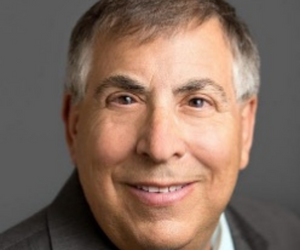Fisheries Need a Timeout – Unfortunately
The fishing industry is a paradox.
Worldwide, the industry faces a crisis. Dozens of fisheries are no longer commercially viable because we’re harvesting fish faster than they’re being replaced. According to fisheries expert Andrew Rosenberg, our fisheries could provide a 50% better yield than they do right now. That extra yield could mean billions of dollars, thousands of jobs, and countless recreational opportunities.
How could fisheries that are already overfished provide a still greater harvest?
A Comparison: Fisheries to a Savings Bank
Rosenberg can explain it; He’s a Regional Director for the National Marine Fisheries Service. Rosenberg likes to compare our fisheries to a savings bank. “Let’s suppose,” he begins, “that you have a bank account with $10,000 in it, and it’s earning 5% interest. If you take 8% each year, then every year the principal is going to go down. Pretty soon, you’re removing 8% of a very small number.”
That, according to Rosenberg, is what we’re doing with commercially desirable fish, except what we’re doing is worse. We’re harvesting an ever larger percentage of an ever smaller number of fish. The result is fisheries that are crashing.
Working on Solving the Problem
If instead, to continue the savings bank analogy, we were taking out only 3% from the savings account when it was yielding 5%, we would soon be removing 3% of a larger and larger number. In the case of fishing, if we removed fewer fish than nature replaces, we could, over time, expect the size of the catch to go up as the stocks of fish grew larger.
Rosenberg predicts that if we gave the fisheries a chance, we could see a significant improvement in the number of fish in just three to five years. Eventually, when the fisheries recovered fully, we could be harvesting 50% more fish than we do now. Even better, once the stocks rebounded, we would be able to achieve this harvest on a sustainable basis.
Unfortunately, it can harm fishermen
“To get to this point,” says Rosenberg, “we unfortunately will have to reduce the amount of fishing. You don’t want to harm fishermen, but there’s no other way to rebuild stocks.”
Often Rosenberg finds himself in the sad position of attending meetings during which fishermen tell him, “I’m going to lose my house, my boat and everything I have with your restrictions.” But in the end, according to Rosenberg, the problem isn’t the government restrictions, it’s that there are too few fish. The alternatives are either cutting back, or allowing the fisheries to crash, in which case everyone would go out of business anyway.
One ray of hope is a Government buy-out program that would help fishermen by buying their boats and encouraging them to find a different kind of work. It would be like programs the Department of Agriculture had when they paid farmers to idle their fields. The problem with this is the amounts of dollars at stake. “The total investment in fishing vessels far exceeds the investment in all the merchant marine,” points out Rosenberg’s colleague, Michael Sissenwine. “It’s more than half the total value of all other vessels in the world including super tankers and luxury liners.”
There are no easy cures to the problem of overfishing.
And the longer we put off dealing with the problem, the more painful the solution will be. However, as both Rosenberg and Sissenwine see it, the sooner we deal with the problem of overfishing, the sooner we can get the economic and recreational benefits of a robust fishing industry.
Search Blogs
Latest Posts
Ukraine’s Rare Metals Offer Rare Opportunities
https://www.wealthmanagement.com/alternative-investments/ukraines-rare-metals-offer-rare-opportunities Publication –wealthmanagement.com
Putin Resorts to Financial Smoke and Mirrors
https://cepa.org/article/putin-resorts-to-financial-smoke-and-mirrors/ Publication –cepa.org
Putin’s Weak Hand
https://cepa.org/article/putins-weak-hand/ Publication –cepa.org
The Game That Heals: How “The Remembrance Game” Provides Therapeutic Relief
https://foreignpress.org/journalism-resources/the-game-that-heals-how-the-remembrance-game-provides-therapeutic-relief Publication –foreignpress.org
Subscribe to Updates
About Author

Mitzi Perdue is the widow of the poultry magnate, Frank Perdue. She’s the author of How To Make Your Family Business Last and 52 Tips to Combat Human Trafficking. Contact her at www.MitziPerdue.com
All Articles
A Contrarian Investment that Could Be Just Right for You
A Contrarian Investment that Could Be Just Right for YouSuppose for a moment that you’re an investor. Not just any investor. In this case you are Peter Hughes. You are a real person, although in fact Hughes is not your real name. Here’s what’s going on with you,...
Knowledge Services: Crucial in Today’s Knowledge Economy
Knowledge Services: Crucial in Today's Knowledge EconomyIf you’re beautifully organized, you can quickly find all your documents when you need them. However, if you’re like most people, the frustration and lost time spent trying to locate a needed document can be...
A Family Book Can Be a Priceless Investment
A Family Book Can Be a Priceless InvestmentImagine something terrible for a moment. If you lost your memory, as in Alzheimer’s, you would have lost one of the most basic factors that makes you you. Without memory, you’d have trouble making good decisions; you’d no...
The Soft Issues Are Really the Hard Issues!
The Soft Issues Are Really the Hard Issues!If you’re part of a business family and you’re also a parent of a school age child, which would be easier for you to do? Be honest! Choice A: Have the Sex Talk with your child Choice B: Have the Money Talk with your child...
Trust: How to Nurture a Key Factor in Family Success
Trust: How to Nurture a Key Factor in Family SuccessTRUST: HOW TO NURTURE A KEY INGREDIENT FOR FAMILY SUCCESS What does it take to be a successful multi-generational family business? Dennis Jaffe, PhD is one of the best people to ask. For more than 40 years, he’s...
Women’s Leadership Styles: There’s a Lot to Learn!
Women's Leadership Styles: There's a Lot to Learn!Women in family businesses face a particular set of distinct challenges when it comes to leadership style. Heather Powell, a family business coach for women and couples, has an impressive track record of dealing with a...






